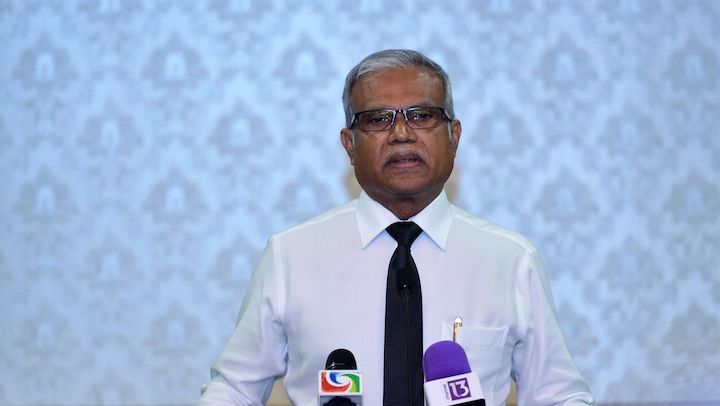Government calls for ‘balanced’ statements from international partners
“Finding amicable solutions to the issues facing the country today should not be a responsibility that falls exclusively on the government,” the foreign ministry said in response to widespread international concern over an intensifying crackdown on opposition leaders.

11 Apr 2017, 09:00
The government has urged international partners to ensure that statements issued about the Maldives are “balanced and reflect the actual situation prevailing in the country”.
Following the arrest of Jumhooree Party leader Gasim Ibrahim on bribery charges, the EU and the embassies of Canada, Norway, Switzerland and the US had called on the government to respect fundamental freedoms and to allow opposition politicians “to conduct their activities without fear of intimidation or incarceration.”
Taking note of the joint statement, the government said it “fully concurs that legitimate, organised, and most importantly, a credible opposition is a vital part of any healthy democracy to thrive”.
However, the opposition should act in accordance with Maldivian laws and regulations, it added.
Become a member
Get full access to our archive and personalise your experience.
Already a member?
Discussion
No comments yet. Be the first to share your thoughts!
No comments yet. Be the first to join the conversation!
Join the Conversation
Sign in to share your thoughts under an alias and take part in the discussion. Independent journalism thrives on open, respectful debate — your voice matters.




